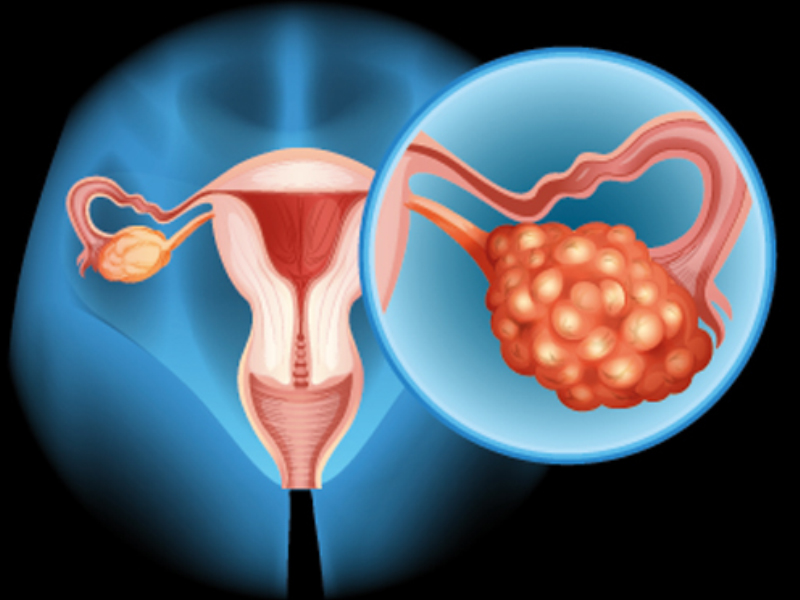Ovarian Cancer
Ovarian cancer is a malignant tumor that originates in the ovaries of a woman’s reproductive system. This type of cancer threatens women’s lives and is one of the most common types of cancer worldwide. Early detection and treatment can improve the curability of ovarian cancer, but it is also important to recognize certain symptoms and know the risk factors.
1. Ovarian Cancer and Risk Factors
The exact cause of ovarian cancer is not known, but certain risk factors may increase the likelihood of contracting the disease. Age is the most important risk factor and ovarian cancer is more common in women aged 50 and over. Family history is also an important factor; women with a family history of ovarian cancer are likely to be at a higher risk than other women. Other factors that increase the risk of ovarian cancer include having genetic changes, a history of breast cancer or colon cancer, late menopause, smoking and obesity.
2. Ovarian Cancer Symptoms and Treatment
In the early stages, ovarian cancer usually does not cause noticeable symptoms and can therefore be difficult to diagnose. However, as the disease progresses, some symptoms may appear. These include abdominal pain, bloating, weight loss, loss of appetite, frequent urination, digestive problems such as constipation or diarrhea, a feeling of pressure in the pelvic area and constant fatigue. It is important to consult a health professional when these symptoms are noticed, as early detection and treatment can improve the chances of ovarian cancer recovery.
Ovarian cancer can be diagnosed through various methods, including physical examination, ultrasonography, computerized tomography (CT) scan and blood tests. Once diagnosed, the treatment plan will depend on the stage and type of cancer and the patient’s general health. Surgery, chemotherapy and radiotherapy are often used to treat ovarian cancer. Surgery is the main treatment to remove the tumor and prevent the cancer from spreading. Chemotherapy is a drug treatment aimed at destroying cancer cells, and radiotherapy is the use of high-energy rays to kill cancer cells.
In conclusion, ovarian cancer is a serious disease that threatens women’s health. While early diagnosis and treatment increases the treatability of the disease, it is also important to know the risk factors and symptoms. Therefore, monitoring our health through regular check-ups, adopting a healthy lifestyle and being alert to possible symptoms can contribute to early detection and successful treatment of serious diseases such as ovarian cancer. In addition, if a woman has a family history of ovarian cancer, she should be aware of the high risk and consult a healthcare professional for regular check-ups.


